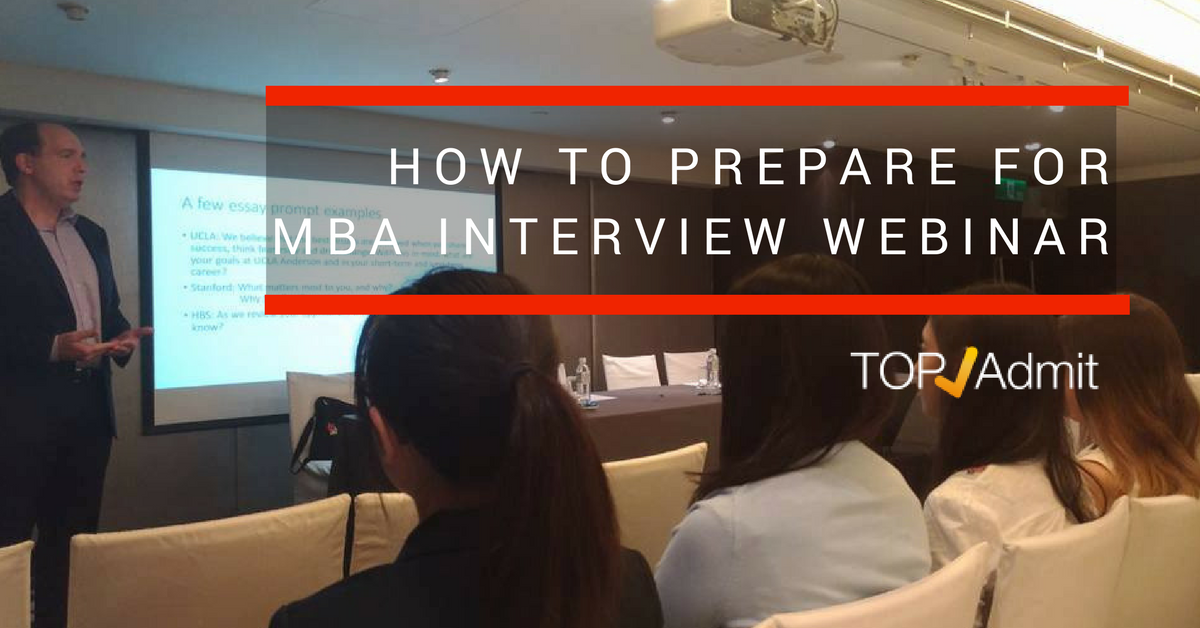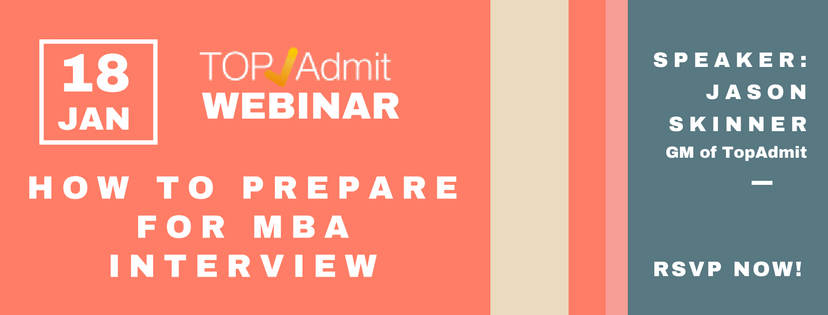
Fortune may favor the brave, but when applying to business school it is careful planning and meaningful self-reflection that win the day.
With round-one deadlines for the world’s top MBA programs less than six months away, this is the time to put together a plan for admissions success. You’ve got a lot of ground to cover:
• Introspection about your personal and professional goals
• Research to identify the schools that match your objectives
• Study for the GMAT or GRE, and any courses that boost your academic record
• Outstanding professional performance to strengthen letters of recommendation
• Purposeful community engagement and genuine leadership opportunities
• Outreach to b-school students and alumni combined with campus visits
That’s quite a to-do list, but MBA admissions success doesn’t just happen — you create it. And that means accepting all the challenges that are involved, and not just pursuing the ones you like.

(Photo by Jens Schlueter/Getty Images)
You don’t have to go to business to make a success of your life, but this is your chance to shape your own path, and not rely on somebody else’s. To more accurately quote business philosopher Jim Rohn, “Successful people do what unsuccessful people are not willing to do. Don’t wish it were easier; wish you were better.”
So where do you get started? Pursuing the theme of insightful quotes, I asked my colleagues at Fortuna Admissions for their advice, based on years of insider experience working in the admissions offices of the world’s top business schools.
Here are their 30 tips for MBA admissions success.
Self-Awareness And Defining Your Personal And Professional Goals
1. “Be your authentic self in your application. The most engaging candidates strip away the pretence, and don’t try to fit into a mould.” — Judith Silverman Hodara, Wharton
2. “Start with good questions — they are the best way to find great answers. Business schools want to know more about you than just your resume. They want to get a sense of what makes you tick. What do you want from your career? What are your strengths and weaknesses? What have you learned about yourself from times you have excelled and times you have failed? Don’t skimp on introspection—or waste the gift of choice.” — Caroline Diarte Edwards, INSEAD
3. “Spend time talking to many people in careers that seem interesting to you so that by the time you apply, you have a much better sense of your post-MBA plans. If you’re looking to make a career transition, consider speaking to people at your current company in positions that you’d like to go into after your MBA since they could be great resources that are highly accessible.” — Dina Glasofer, NYU Stern
4. “When talking about your long-term goals, think big. You will inspire the reader with your plans to change the world, not with your goal of retiring at 50. Find the thread that links your past decisions with your future goals. Make sure your story makes sense with a clear vision of where you want to go.” — Heidi Hillis, Stanford GSB
Selecting And Researching Your Target Schools
5. “Don’t settle for the ordinary — by definition a stretch school is within reach and by stretching yourself you will improve your reach. Believe in yourself, so that the admissions office can believe in you.” — Julie Ferguson, Chicago Booth
6. “Look beyond MBA rankings. List the factors most important to you and talk to students and alumni to help assess the fit.” — Dina Glasofer, NYU Stern
7. “Don’t settle for general statements about the school. Repeating well-known facts proves nothing. Identify and be able to explain your personal passion for the school.” — Karen Ponte, London Business School
Mastering The GMAT
8. “If you’re going through hell on data sufficiency or critical reasoning, keep going. You may have to fight the GMAT battle more than once to win it.” — Judith Silverman Hodara, Wharton
9. “Improving your GMAT score by 100 points is achieved in 10 point increments. Test success is the sum of small efforts practiced day in and day out.” — Cassandra Pittman, Columbia Business School
Personal Branding
10. “Think like a marketer — define and design your brand. What’s your unique expertise and contribution to the MBA program? Leverage that in each part of the application.” — Katherine Johnson, Harvard Business School
11. “As you look to set yourself apart, consider the lens that has influenced your worldview—and then find ways to project that understanding of yourself into your application.” — Brittany Maschal, Wharton
12. “Every school wants diversity – think how could your professional background, upbringing, nationality, age, future ambitions or interests add a unique dimension to your MBA class.” — Melissa Jones, INSEAD
Resume
13. “Be specific – demonstrate your value with objective evidence, don’t just ask the reader to take your word for it.” — Jodi Keating, Wharton
14. “Tone back the technical language and take it back to basics, highlighting the skills relevant to the role and ones the school will be looking for.” — Nicola Sandford, INSEAD
15. “There is probably someone applying to your target school with the exact same job title as you. Your resume needs to show exactly why you are better at that job.” — Jodi Keating, Wharton
Application Essays
16. “Telling a story that illustrates the type of person you are has far more impact than telling the reader what kind of person you are. Show, don’t tell.” — Heather Lamb Friedman, Harvard Business School
17. “In your essays, go for the why, not the what. The resume tells what you did, it is up to the essays to explain what motivated you.” — Heidi Hillis, Stanford GSB
18. “Don’t just cut and paste essays from one school to another. Each application should feel like it was written specifically for that school, including concrete examples and specific school offerings rather than generalized statements.” — Dina Glasofer, NYU Stern
19. “Focus on depth over breadth! Talk in a non-technical manner when explaining your career — your file reader may come from a different background to you.” – Nonie Mackie, INSEAD
20. “Show self awareness. When talking about your weaknesses, be honest. A strength disguised as a weakness could very well backfire. Remember that you need to show that you still have something to learn.” — Michel Belden, Wharton
Extra-curriculars
21. “Go for quality not quantity. It’s better to get deeply involved in one thing you’re really passionate about, than to start four new activities simultaneously.” — Emma Bond, London Business School
22. “Devote your time and energy to something that supports your personal purpose in life. Don’t just get involved because it’s an admissions criterion. Do it because it genuinely resonates with who you are, your values, and your sense of purpose.” — Catherine Tuttle, Duke Fuqua
23. “Don’t underestimate the importance of your passions outside of work. The 10 years spent training as a ballerina shows dedication and drive, and can help you dance your way to the top of the applicant pile.” — Melissa Jones, INSEAD
Letters Of Recommendation
24. “Work on developing a relationship with your recommenders now so that when you ask them for a recommendation they are inclined to do so.” — Michel Belden, Wharton
25. “Don’t assume that your recommenders know what they are doing. Details, depth and insight add value; generalisations and do not. Help them to help you.” — Caroline Diarte Edwards, INSEAD
Interviews
26. “There is a misconception that schools are looking for perfect candidates, when in fact schools are looking for candidates with the right fit.” — Malvina Miller Complainville, Harvard Business School
27. “Practice, practice, practice! Have great examples to hand and a clear story, ensuring you tell the interviewer what you did do, not what you would do.” — Nicola Sandford, INSEAD
28. “Prepare your key selling points and stories ahead of time, and go into the room feeling confident that they wanted you there, and enthusiastic about the prospect of joining the school’s community.” — Malvina Miller Complainville, Harvard Business School
Staying On track
29. “Focus on what you can do, rather than what you cannot undo. A brand-new start is not an option, so put your energy into a brand-new ending.” — Brittany Maschal, Wharton
30. “When tackling the most challenging areas of your MBA application, get up early in the morning and be sure to complete these first!” — Nonie Mackie, INSEAD
It is clear from the insider experience of my colleagues, and decisions they made to admit certain candidates and reject others, that successful and unsuccessful applicants do not vary greatly in their abilities. They vary in their desires to achieve their goals. So what is to stop you?
Source: www.forbes.com













